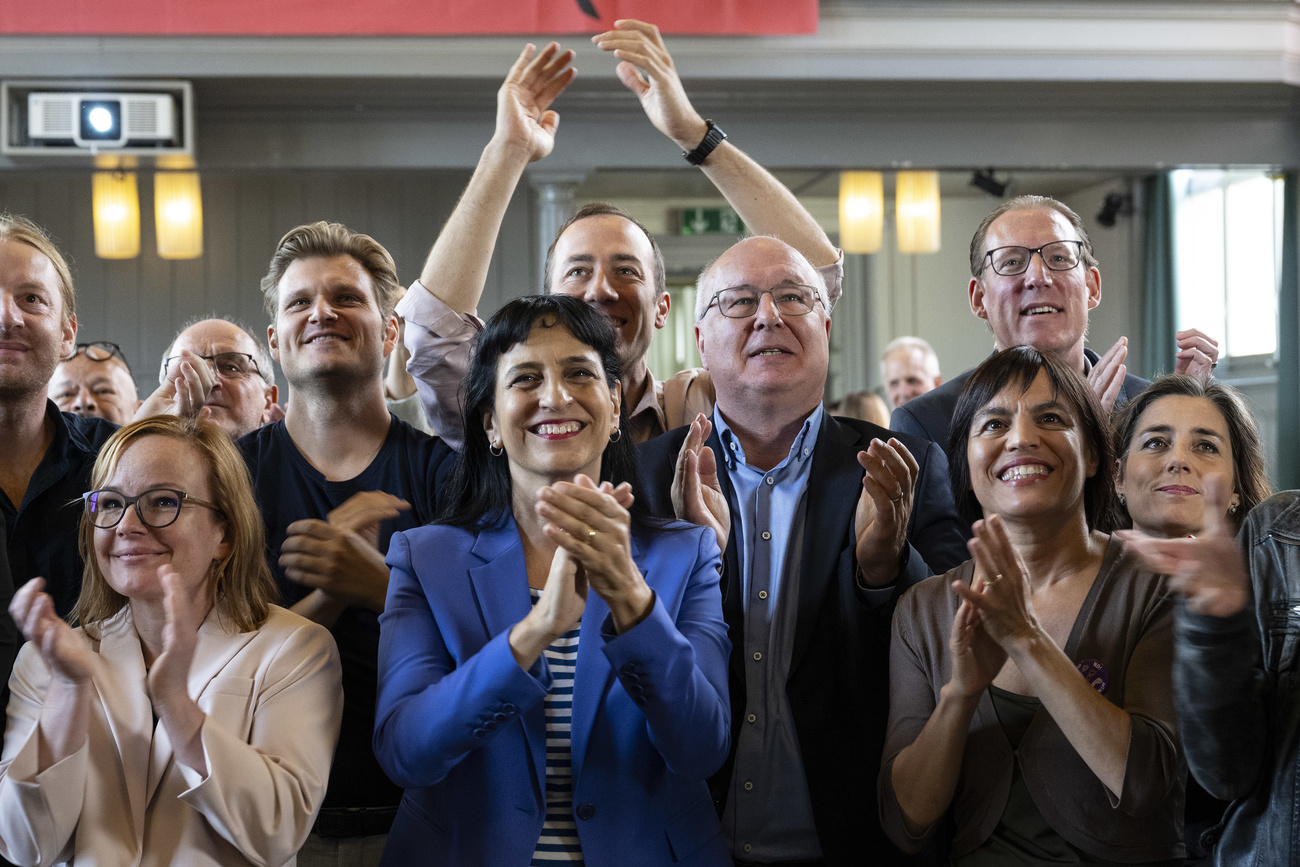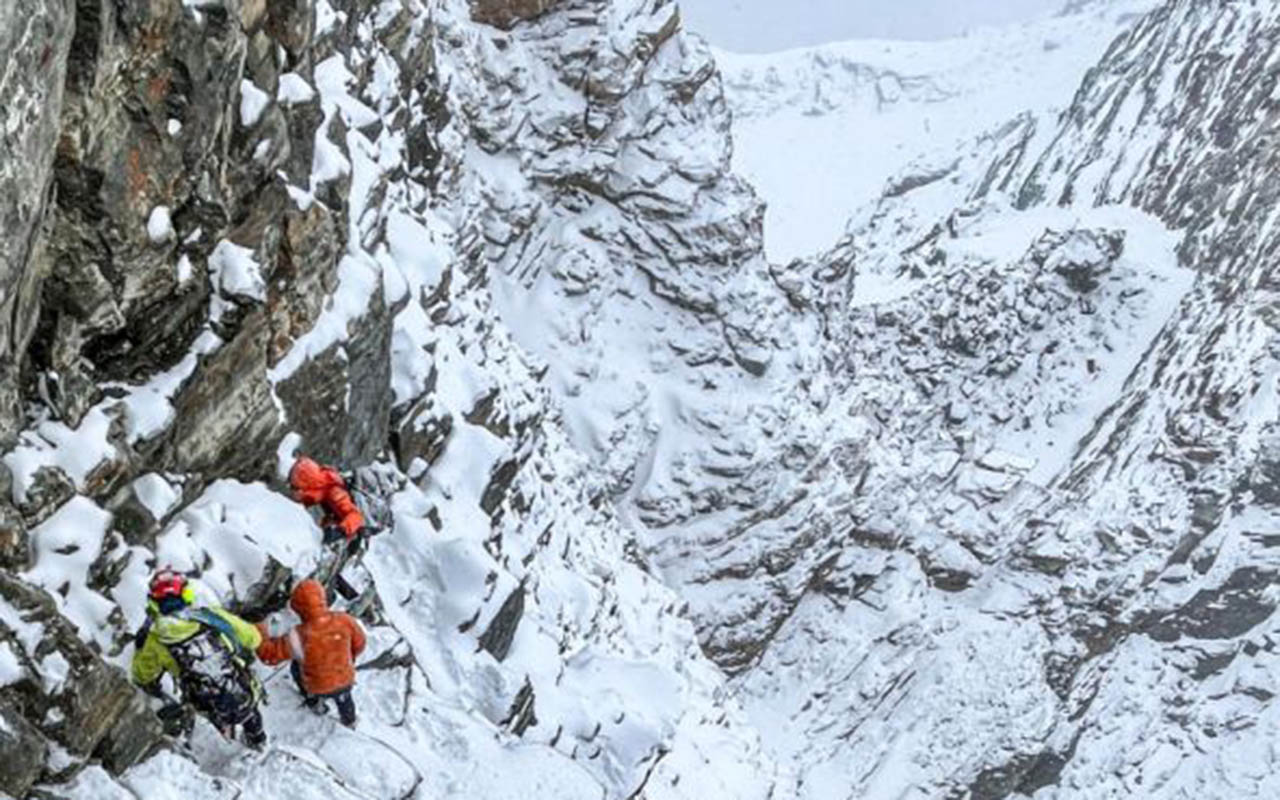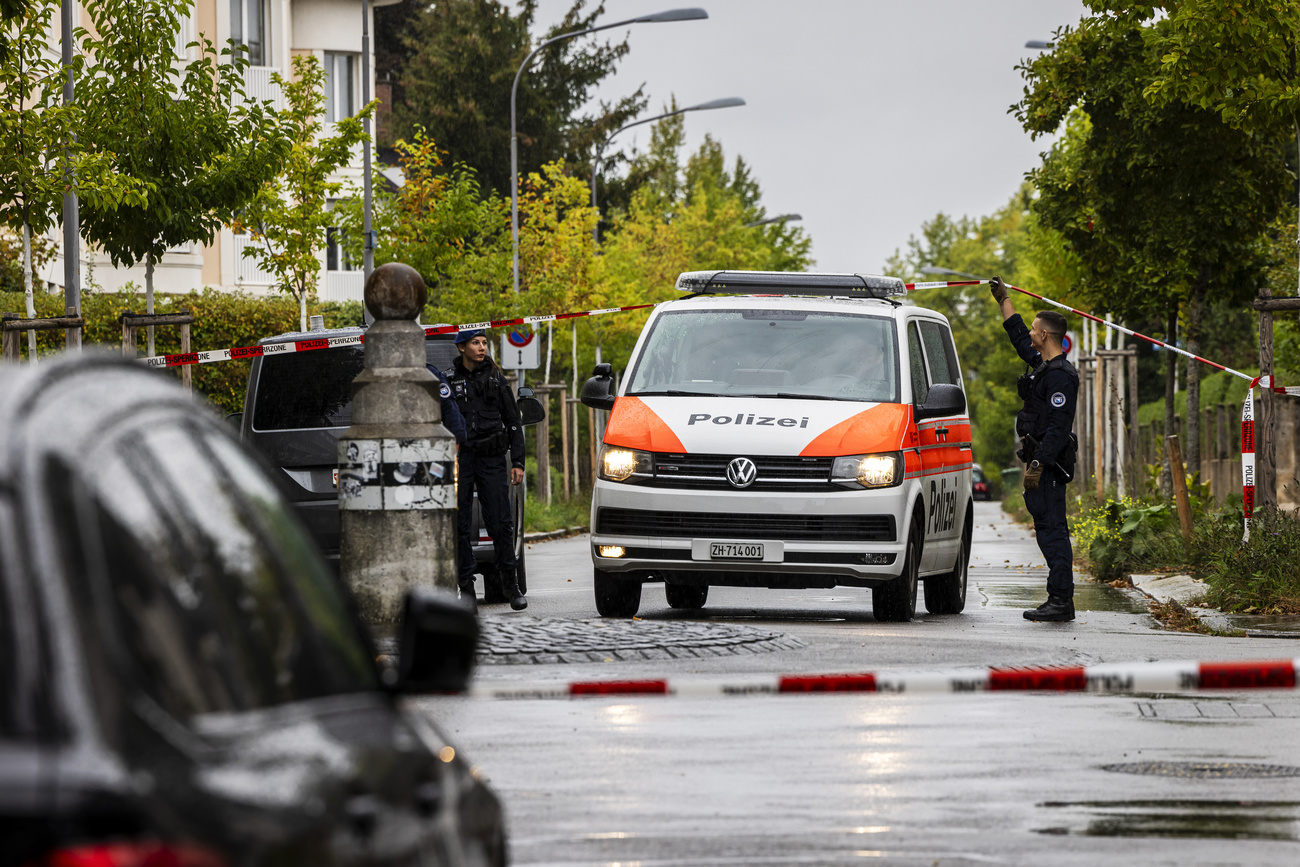Security takes centre stage at Expo.02

How does a country like Switzerland build a national security policy?
That was a question discussed by military experts at major conference at the national exhibition site in Murten.
The international meeting, entitled “Security in Openness”, was the climax of a series of events organised by the Swiss government at the Expo.02 site at Murten-Meyriez.
Accompanying the conference was a temporary exhibition which highlighted how the various security institutions within Switzerland – army, police, border guards, fire service, civil protection – must work together to deal with disasters and security threats.
Cooperation was the buzzword throughout. If the exhibition emphasises national services working together to produce a more comprehensive approach to security, then the conference stressed the need for international cooperation.
The two cabinet members present said Swiss security could only be ensured by working with other countries.
The defence minister, Samuel Schmid, said he wanted to strengthen partnerships by sending more military attachés abroad, while the foreign minister, Joseph Deiss, stressed the importance of the United Nations in solving global problems like Iraq.
Specific skills
In an interview with swissinfo, Schmid reiterated the view that while Swiss troops would not take part in peace-enforcement operations, it would increasingly be involved in peacekeeping, as it had done in Kosovo.
“Our militia army means that Swiss soldiers have another profession and these specific skills can be very useful in peacekeeping operations,” he said.
The other speakers at the conference demonstrated how security crises cannot be contained within borders.
They included Jakob Kellenberger, president of the International Committee of the Red Cross, Janet Lim of the UN High Commission for Refugees, Bernard Kouchner former head of the UN mission in Kosovo.
Also present was Klaus Reinhardt, the former commander of Kfor, Ed Plaugher, who headed the fire-fighting efforts at the Pentagon on September 11 and Klaus-Henning Rosen, who coordinated relief efforts during the recent devastating floods in Germany.
Their contributions showed how development aid and peace promotion can play just as great a role in creating a peaceful world as defence spending.
Rethink
The first speaker was the veteran political analyst, Curt Gasteyger. He said Switzerland could only ensure security through engaging with its neighbours and responding to the challenge of an expanding European Union and NATO – even if this meant questioning some cherished notions.
“There are a number of givens that will have to be reviewed when it comes to decision-making in cases of national emergency, especially when it comes to forging alliances with other countries,” Gasteyger told swissinfo.
The notion of national security in Switzerland has evolved beyond all recognition since 20 years ago and is likely to continue changing.
“Traditionally our concept of security policy was first and foremost one of military defence – territorial defence guaranteed by the army,” says Philipp Welti, a high-ranking Swiss defence official. “This is no longer enough.”
“There is no immediate military threat, but there are other factors that have emerged that threaten our security which need to be tackled,” he told swissinfo.
These new destabilising factors could be anything from national disasters to waves of refugees from conflicts zones. Switzerland has been active in rebuilding parts of the Balkans because what happens there has a direct impact on its own internal security
Similarly it has been touched by last year’s terrorist attacks on New York and Washington. It is not only US security policy that has had to be reshaped as a result.
Public debate
“There are more threats and they are more complex. We need to mobilise a greater variety of instruments to deal with them. Openness means developing cooperation -national and international,” Welti says.
Alongside the temporary exhibition is an installation – the Shipyard – with symbolic gantries representing various issues – refugees, cross-border crime, international organisations. These sway constantly as a seaworthy national security policy is “built”.
It is all part of an attempt to provoke a debate on the issue: “We want the public and politicians to start thinking about these issues so that we can develop better policies,” Welti says.
The message from the whole site is the fundamental importance of cooperation – domestically and on the international stage – in meeting challenges. In neutral, inward-looking Switzerland, that is not always easy.
“We have to develop the capacity to cooperate – not only technically but also mentally,” Welti concludes.
swissinfo, Roy Probert
The “Security in Openness” conference dealt with future challenges to Swiss security and foreign policy
The theme of the government’s various exhibitions at Murten has been that security can only be strengthened through cooperation – at home and abroad
“Cooperation for national security” is the government’s final temporary exhibition at Murten
Others have dealt with antipersonnel mines, the UN, and Peace

In compliance with the JTI standards
More: SWI swissinfo.ch certified by the Journalism Trust Initiative








You can find an overview of ongoing debates with our journalists here . Please join us!
If you want to start a conversation about a topic raised in this article or want to report factual errors, email us at english@swissinfo.ch.